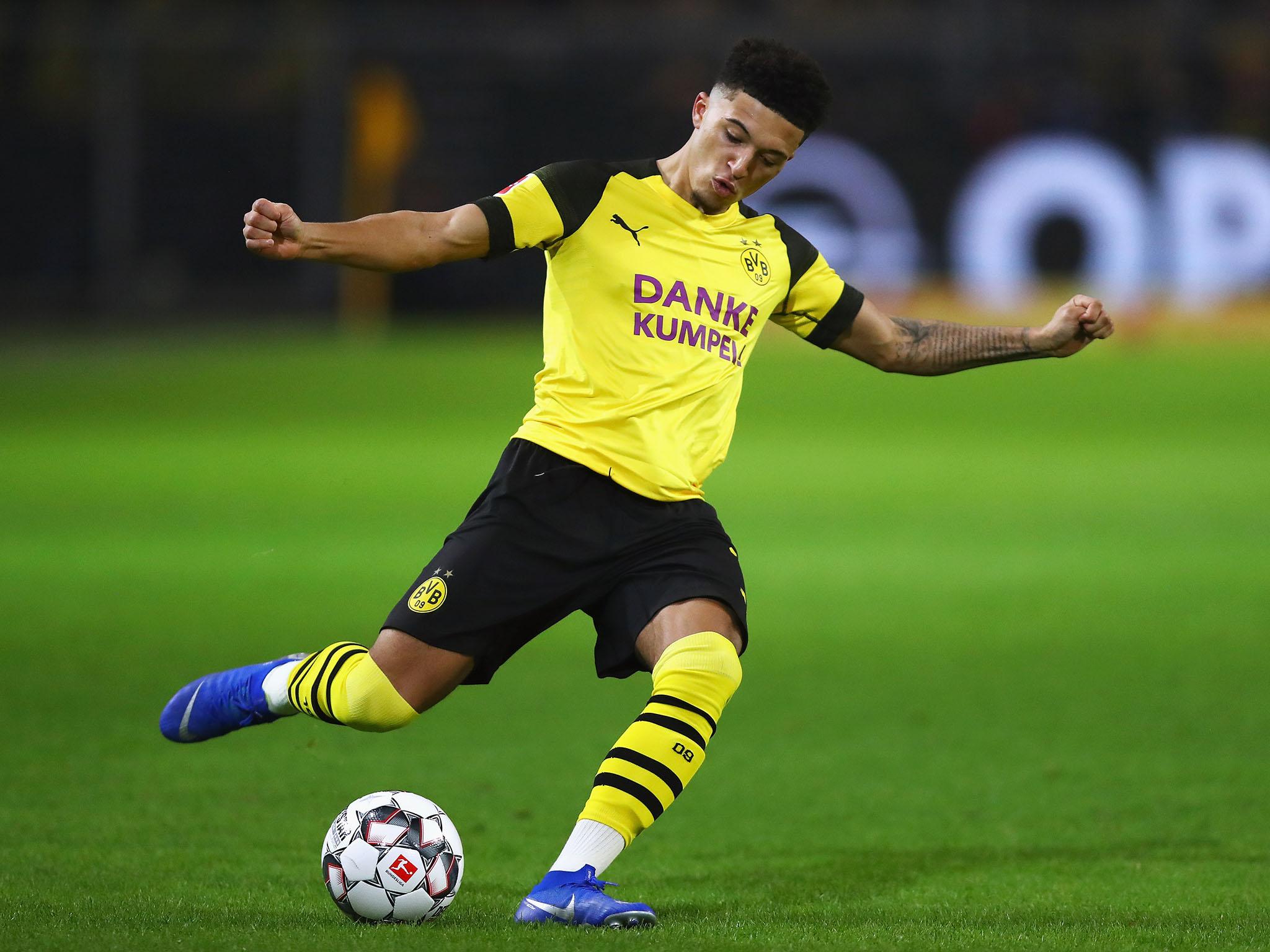Jadon Sancho and other English teenagers have ‘overtaken’ German counterparts, says Dortmund chief
Michael Zorc believes England are now producing the best young footballers thanks to their investment in academy set-ups
Your support helps us to tell the story
From reproductive rights to climate change to Big Tech, The Independent is on the ground when the story is developing. Whether it's investigating the financials of Elon Musk's pro-Trump PAC or producing our latest documentary, 'The A Word', which shines a light on the American women fighting for reproductive rights, we know how important it is to parse out the facts from the messaging.
At such a critical moment in US history, we need reporters on the ground. Your donation allows us to keep sending journalists to speak to both sides of the story.
The Independent is trusted by Americans across the entire political spectrum. And unlike many other quality news outlets, we choose not to lock Americans out of our reporting and analysis with paywalls. We believe quality journalism should be available to everyone, paid for by those who can afford it.
Your support makes all the difference.English teenage footballers have “overtaken” their German counterparts in the last few years, according to Borussia Dortmund sporting director Michael Zorc.
England won the Under-17 and Under-20 World Cups in 2017, as well as European Under-19 Championship. Those players are now starting to make their way in senior club football, most of all Sancho, who arrived signed for Dortmund 18 months ago. He is now one of the best youngsters in the world game.
Since Dortmund signed Sancho, Bundesliga teams have flocked to sign more English youngsters, hoping to capitalise on Sancho’s own success story. Reiss Nelson, Sancho’s childhood friend, is on loan at Hoffenheim, Emile Smith-Rowe has gone to RB Leipzig on loan, and Reece Oxford is at Augsburg. Bayern Munich tried to sign Callum Hudson-Odoi last month and bid £35million to sign him.
This is a reversal of years of Premier League clubs using their TV money to cherry-pick the best young players from German football. Zorc knows more about this than anyone, having signed Sancho and Denzeil Boadu from Manchester City in 2017. And he puts English youngsters’ superiority down to heavy investment in academy infrastructure in recent years, which is “much higher” than equivalent spending in Germany.
“Let’s go back say 5-10 years, there was a time that English clubs signed German players, they had a team to sign German players,” Zorc told the British press at Signal Iduna Park on Thursday afternoon.
“There was a lot of discussion here, ‘it’s all about money you know’, ‘it’s too early for them to go from Germany to England.’”
But English investment in academies over the last decade has begun to turn the dial the other way. Zorc pointed to the example of City, who built themselves the state-of-the-art new ‘City Football Academy’ as part of the Etihad Campus, next to the Etihad Stadium, which opened in 2014. Zorc said it was incomparable to academies here in Germany.
“Since then, we have the feeling that the education and development of youth players in the English academies is quite good, to be honest,” Zorc said.
“The teams don't only spend much money on transfers or salaries, but also on infrastructure. When you see these youth academies - for example Man City - you can't compare it with the German standard. It's much higher, much higher.”
That increased investment has told in the improved performances by English teams in age-group competitions. “You can recognise it also in results,” Zorc said.

“You know the English teams are reaching Under-17, Under-19 [finals] compared to the German ones. It seems to me that they overtook us.”
Zorc also pointed to the money that City have been able to make from selling on their academy products in recent years. As well as selling Sancho to Dortmund in 2017, last month they sold Rabbi Matondo to Schalke 04 for £11m and Brahim Diaz to Real Madrid for £15m. This means that an academy can be a way to make money, just as it has been for Chelsea in the last few years.
“It seems to me that it’s something like a business model for them, because even if they don't succeed in their own teams they sell them for higher prices,” Zorc said.
“I just read a figure of Man City - I think they've sold young players for more than 150 million within the last 3 or 5 years!”
Join our commenting forum
Join thought-provoking conversations, follow other Independent readers and see their replies
Comments